Safe Agua Colombia
- Social Entrepreneurship
- Sustainable Development
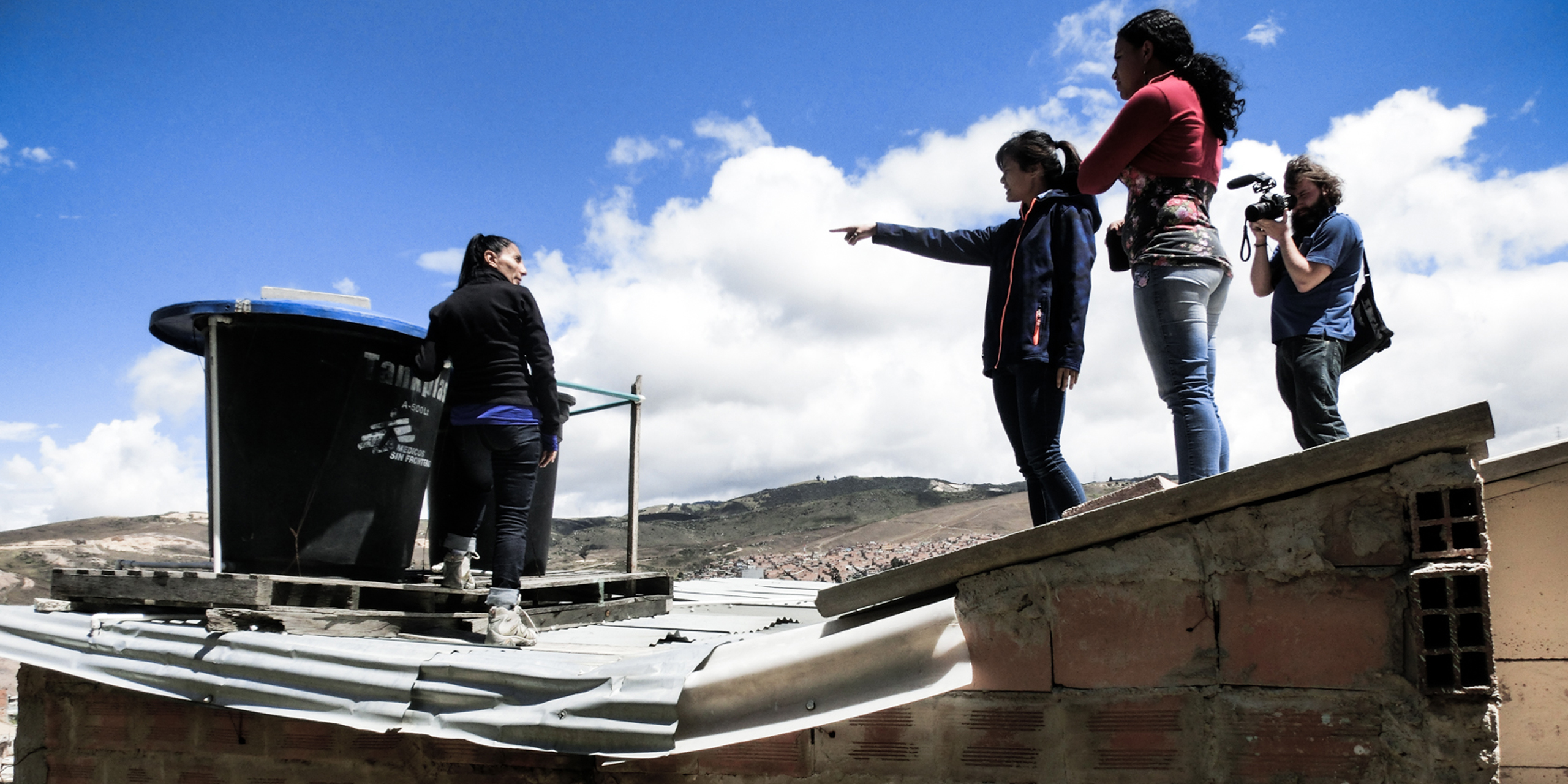
Fall 2013
Continuing to build on the investigations and experiences of the successful and award-winning SAFE AGUA Chile and SAFE AGUA Peru projects, students traveled to Altos del Pino, in Bogota, Colombia to co-create with families innovative technical design solutions for their community, seeking to overcome some of the social issues created by water poverty and to make an impact through resulting products and systems.
It’s about management of the water not just the quantity. Some of the community members are very careful, while others may spill or use it in tasks where it should not be used. Sanitary conditions of the individual houses vary, as well as the condition and cleanliness of the buckets.
– Francisco Noguera, Project Manager, Compartamos con Colombia
RECENT PROJECT DEVELOPMENTS:
Safe Agua Colombia outcomes Calientamigos and Community Learning Garden have had major developments in recent months. Calientamigos (designed by Tianyi Sun, Kevin Chang, Della Tosin and Mariana Somma) received a VentureWell Stage 2 E-Team Grant. As part of this prestigious grant, team members were able to attend the VentureWell Stage 2 Conference in Boston to gain insight on potential business model strategies. Calientamigos also participated in the 2015 Open Minds Conference held in Washington D.C. late March where they won the People’s Choice 1st Prize with the most audience votes in conference history!
The Community Learning Garden created by Stefanie Dhillon was recently implemented in Altos del Pino, in Bogota, Colombia with generous support from a Muhammad Ali Center Peace Garden Grant.
About Safe Agua
The SAFE AGUA project represents an ongoing commitment by Art Center College of Design and its Designmatters Department to design research and innovation that addresses water and sanitation issues with families living in informal settlements. Each change in location (whether Chile, Peru, or now, Colombia) allows us to dig deeper in some of the design challenges and opportunities. The first design school to earn United National NGO status, Art Center and its Designmatters programs continues its historical partnering with local NGO’s allowing access to communities and social enterprise network. Since 2009 and its first collaboration with TECHO (Un Techo para mi Pais) and SOCIALAB, the Safe Agua initiative has offered the unique opportunity for Designmatters to explore the role of designing with purpose and for resilience with families that have limited water access in informal settlements. Compartamos con Colombia, a new partner specific to this Safe Agua Colombia project, will provide the additional opportunity to further develop the design outcomes into market-based opportunities for the community of Altos del Pino. Despite all the good endeavors in the area of “water poverty” throughout the world, barriers to progress remain. A key component of this specific project is the addition of adding design expertise around “systems” and services, as well as new products. There are different cultural aspects to all three locations, but all still brought together through the similarities in the design process for social impact and working towards implementation.
We made connections during this experience that will last forever. The importance that human-centered design brought to the process cannot be overstated. The design solutions the students developed not only focused on improving the quality of life but also creating business opportunities, while at the same time staying sensitive to the cultural values of the community aimed at bringing the members of the community from surviving to thriving.
– Javier Palomares , Faculty, Environmental Design
Introduction
Safe water is the foundation of life. Yet worldwide and throughout the developing world, 768 million people still lack basic access to safe water, sanitation and hygiene (WASH). The Safe Agua Colombia course provides interdisciplinary student teams the opportunity to work directly with families from Altos del Pino and partner organizations, to design radically affordable products, systems, and services for access to safe water and hygiene that will have a positive and lasting impact on their lives. Two specific elements of this particular project were critical to its high success. First, the inclusion of two native Colombians on the faculty solidified having an international team on the ground. This provided a major impact throughout the entire research and testing process, particularly in the active involvement of the families. Secondly, there was a strong community leader who further helped build cultural bridges that brought a collective commitment and passion to the process of co-creation.
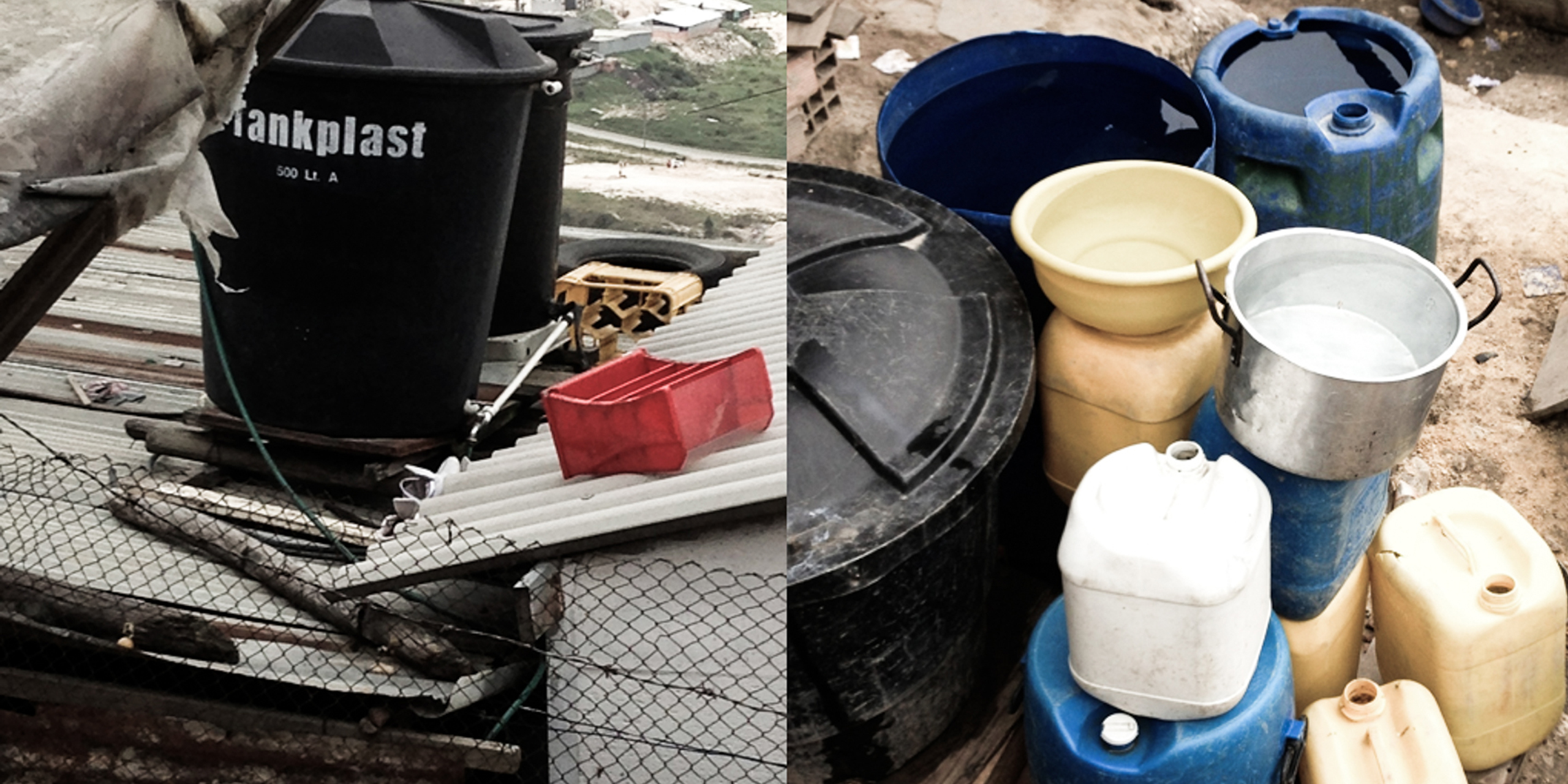
Partners and Planning
Safe Agua Colombia brings together TECHO/Colombia (a prominent Latin American NGO that serves communities living in slums); SOCIALAB (the Innovation Center affiliated with TECHO); as well as the Colombian governmental agency ANSPE, and Compartamos con Colombia, an innovative public-private partnership, along with the community leaders of Altos del Pino, located in Soacha, south of Bogotá. The choice of this community as a sample population for the collaboration was made with Designmatters Vice President Mariana Amatullo in April 2013, during an initial scoping visit to Colombia. Altos del Pino presented ideal conditions to work with a cross-section of families who live in conditions of extreme poverty and are affected by systemic challenges due to lack of access to running water services. Safe Agua Colombia aims to gather human-centered data and develop design prototypes for services and products co-created with a community of families living in extreme poverty in Altos del Pino.
I challenged the students to consider market forces from the very beginning. As the process unfolded, it ended up being an awesome learning experience fro me, understanding each student’s design perspective, the end user’s challenges, and what solutions are possible when multiple disciplines come together.
– Tim Kline, Guest Faculty, University of Southern California
Research and Project Development
Research Methodology Safe Agua Colombia’s investigation began with an immersive two-week field research trip to Altos del Pino, where Art Center students worked alongside families and community partners to design and develop solutions – products, systems and services – around water, to help overcome the cycle of poverty for families living in Colombia’s asentamientos (slums), and specifically in Altos del Pino. The ethnographical research methodology process developed by Art Center faculty member Arden Stern kept the students focused on Design Goals, both qualitative and quantitative, that would allow the them to co-create radically affordable products & systems with Base of the Pyramid families and produce sustainable, scalable, real-world implementation. Emphasis was placed on addressing specific problems, with both quantitative benefits (illness reduction, water conservation, increased time for self-improvement, opportunities to generate income) and qualitative impacts (sense of dignity, aspirations, cultural values) and producing solutions at the scales of products for individuals and households; systems, spaces and services for the community and beyond.
It was apparent that the entire team understood that no individual was the sole author of the design. The concept of co-creation was always at the forefront of the design process – it was never a buzzword. All of the projects were very coherent from a research perspective. I was really pleased to see that the construction of the individual business plans was an outgrowth of what the students had experienced.
– Arden Stern, Faculty, Humanities and Design Sciences
A combination of text, images, ideas and diagrams were posted on walls to visualize the experience and serve as a preliminary step that allowed the students to organize all of the information that they had gathered. This was done both in preparation for as well as following their visit to Altos del Pino.
Research topics focused on:
Individual & Community
- Day In The Life
- Aspirations / Limitations
- Resilience & Networks
- Maps & Resources
Specific Water Focus:
- Obtain / Contain
- Carry / Move
- Use / Reuse Water
The goals of the field research were to develop an immersive understanding:
- Seek the most powerful opportunities
- Identify important, relevant problems to address that apply both locally and provide the opportunity to be expanded to 1000’s of villages worldwide
- Establish empathy and deep connections with the local families
- Gain understanding of people’s dreams, needs, and constraints through: Participation and direct experience; qualitative and quantitative questions & analysis; listening to people’s stories
Driven by the initial field research, the students then returned to the studio, formed design teams centered around the various projected areas, and began the analysis of field data to inform their conceptual/design development phase, with a goal to create complementary, low-cost prototypes and systems to address the specific water-related needs they observed with families on-site in Altos del Pino. Throughout this process they were in continuous contact with the families via email, Skype and other types of communication tools and systems, further enhancing the ideal of co-creation. An integral part of the analysis process was the component on social entrepreneurship led by Adlai Wertman from the University of Southern California Marshall School of Business. He stressed the importance that good design alone will not provide solutions that make sustainable social impact, but rather than it needs to be supported by a strong business model that is self-sufficient and sustainable itself.
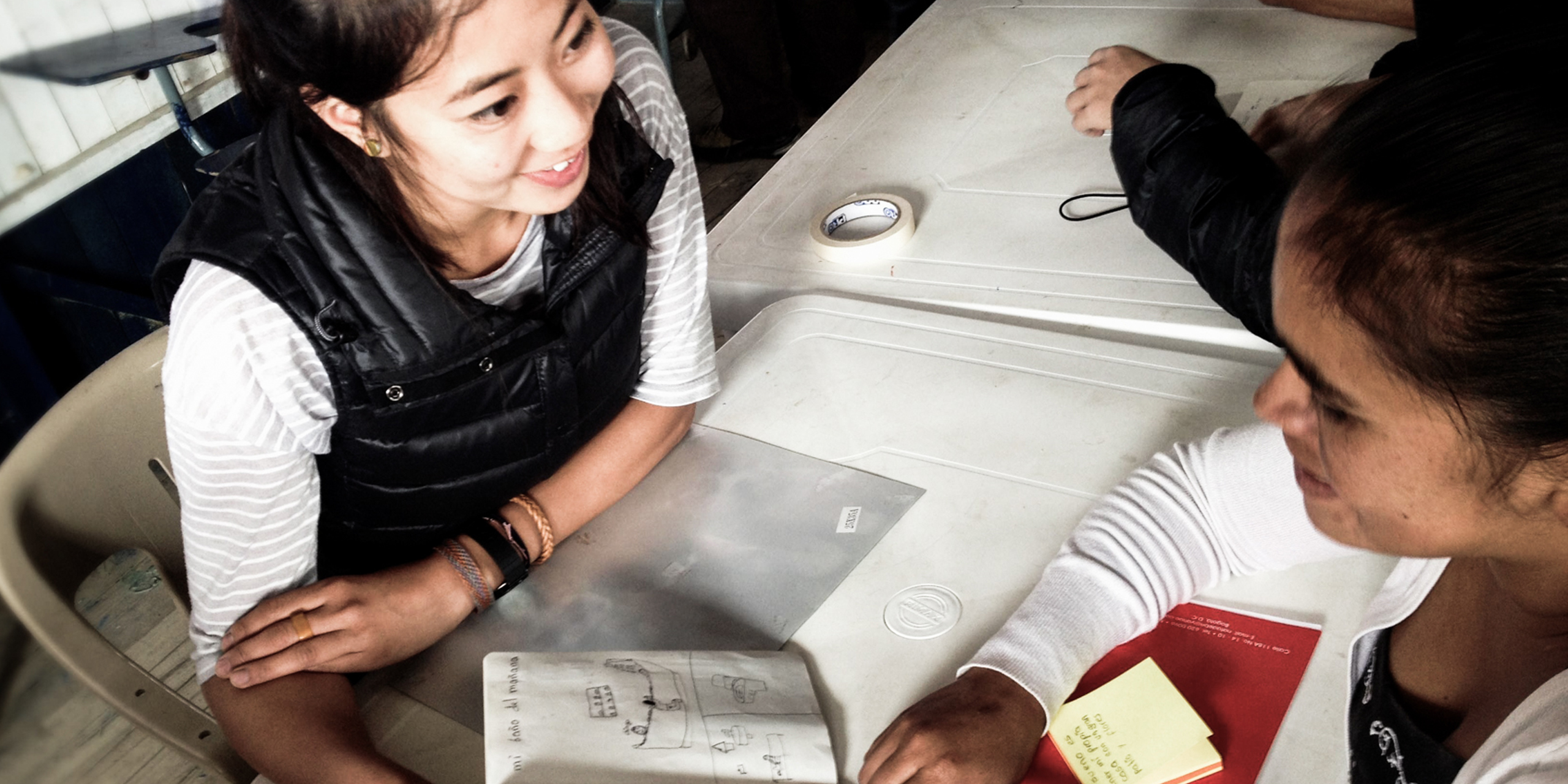
This Safe Agua project really brought co-creation to the next level. We are most proud of the constant feedback loops between the students and families and our NGO partners. This led to amazing projects that were created with the community. The leap in progress from midterm to final presentations was enormous because of that process of co-creation and field-testing. Every step of the way, everyone worked together refining the designs to help have the best possible impact on peoples’ lives. Each of the projects is optimistic AND realistic, and the team is moving towards implementing them into reality.
– Penny Herscovitch and Dan Gottlieb, Faculty, Environmental Design
Field Testing Prototypes with Families in Altos del Pino
The initial co-created design concepts, first ideated during the field trip, were then developed, reiterated and refined over a 14-week studio at Art Center’s Pasadena campus. This process of development benefited from several guest expert critiques including significant feedback from the Altos del Pino community at the mid-way mark, when several members of the team returned to Colombia to test the prototypes-in-progress with families and get their feedback and suggestions. Given the user-centered approach to this project, field-testing the multiple prototypes was a critical step in the process. The community members helped to define and refine some of the initial assumptions. Friendships were developed and the community members felt there was new hope, possible jobs and an improvement in the quality of life. They also became more invested in the final outcomes and had high expectations of seeing the projects actually come to fruition for them. The high level of confidence that has developed through the interaction of the teams with the community has furthered their hopes that the social entrepreneurial component of projects will help to bring them from survival levels of living to thriving levels. Using the feedback gained from the field tests in Altos del Pino, the design teams increased their efforts to incubate and develop the projects further. Their final presentations were made in December 2013. Those Project Solutions are presented below.
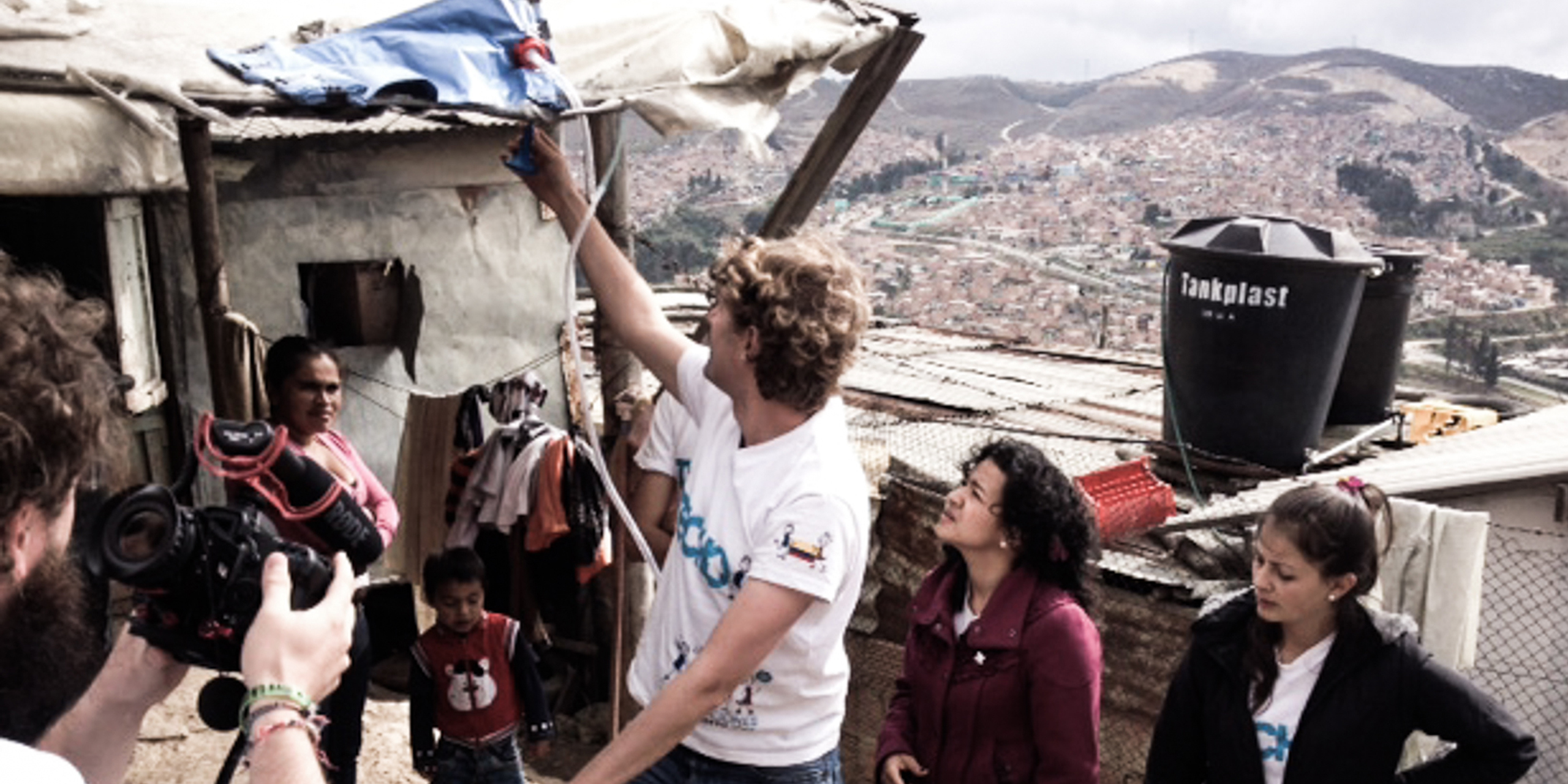
I was fortunate to return to Colombia to conduct our second phase of field research. The co-creation model we used pushed each proposal well beyond anything that could have been achieved from California, capturing the true needs and aspirations of the families and confirming the merits of each design. I look forward to working on the next step – a pilot program in Colombia to further test and refine the system.
– Isaac Oaks, Student, Product Design
Outcomes
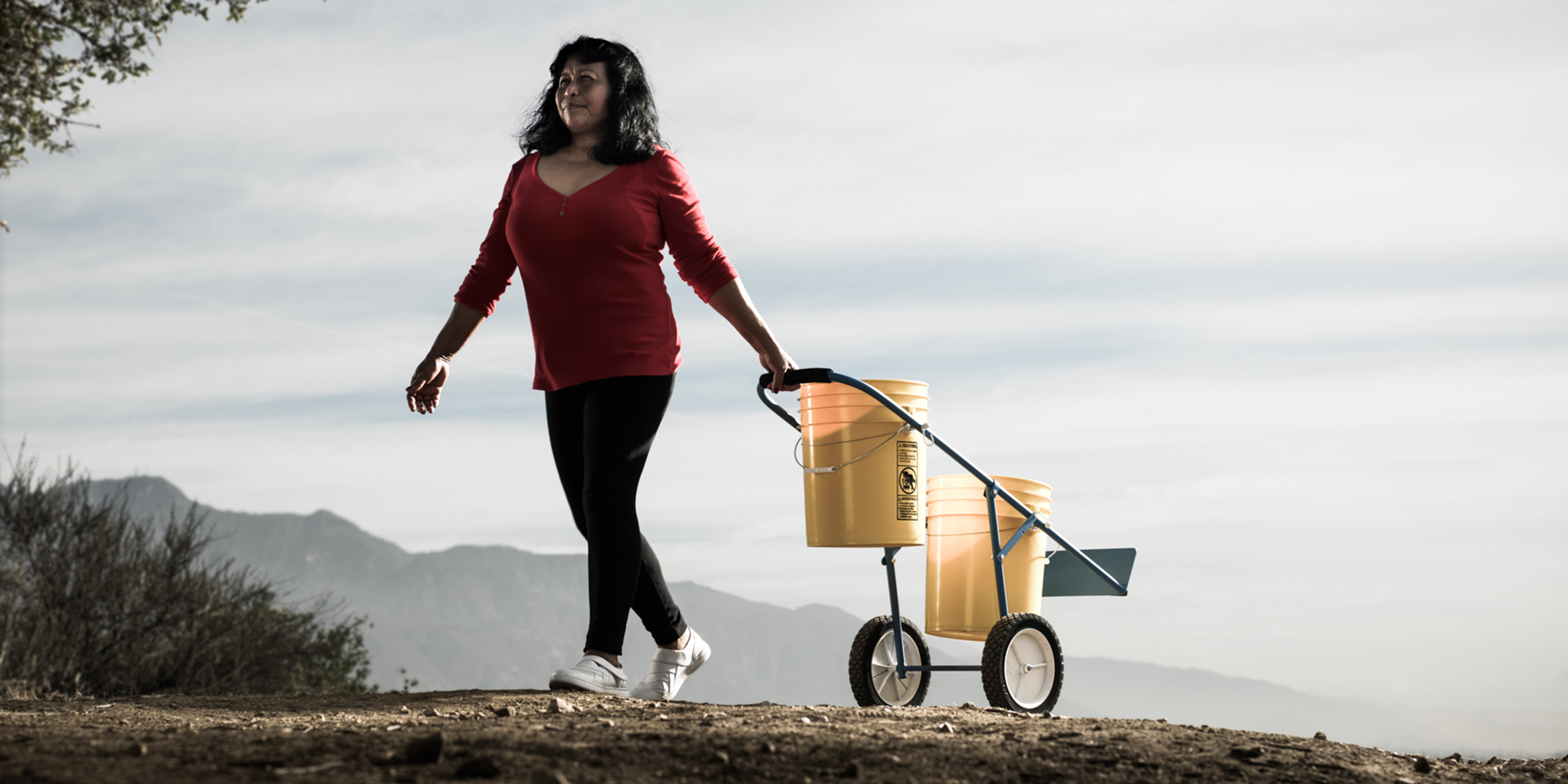 close
close
WaterWays: Balde Movil
Read moreShingo Mamiya (PROD) & Kristina Jesena (GRAD ENV)
Without running water, hand-carrying water within and between homes is physically straining, inefficient, and makes water prone to contamination. Balde Movil in an inexpensive, lightweight dolly that makes it easy to transport two common 5 gallon buckets, along with other heavy items such a gas cylinders, bags of rice or firewood, even when rolling on hilly terrain. This innovative product makes water accessibility within the domestic sphere more efficient, more sanitary, and less physically stressful. With a low cost and easy assembly, the Balde Movil could be accessible to all families or, in the alternative, a system of sharing or providing services to other families. Sharing and/or a rental system (that could include barter) would also bring the cost of ownership lower. The business plan includes for local assembly, however, the design also provides for flat-pack shipping.
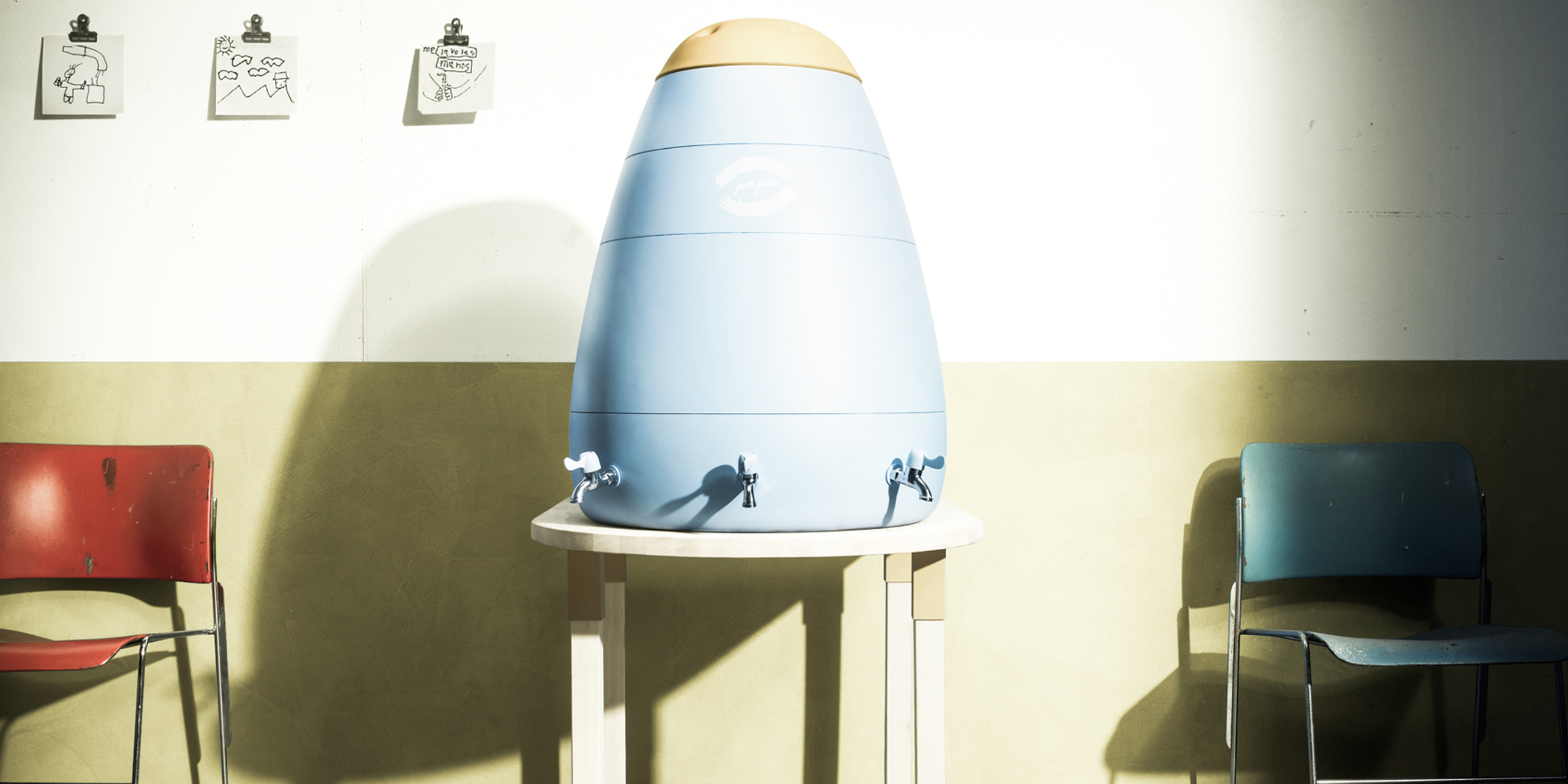 close
close
Community Water Exchange: “Papa – the water source”
Read moreCarolina Rodriguez (ILL) & Isaac Oaks (PROD)
Each household in the informal settlement of Altos del Pino, Colombia receives water for one hour every eight days. For most families, this water is not enough to last all eight days, yet some families have water to spare at the end of the week. Further the water often gets dusty/dirty in the storage containers, leading to sickness. This entrepreneurial model for a Community Water Exchange incentivizes families with extra water to share with those who run out frequently by donating it to the soup kitchen, thus ensuring that every child in the community has access to clean drinking water, every day. By pooling the resources within the community on a more official basis, Papa would be located at El Comedor, a community soup kitchen attached to one of the resident’s homes that provides lunches to 80 children from the community. Utilizing cost-effective materials and construction, this water-sharing dispenser would be economical to produce, low in maintenance and inexpensive to maintain, adding to its value and ensuring drinkability. Papa could be purchased by a local NGO and distributed with other food/supplies that are going into the communities.
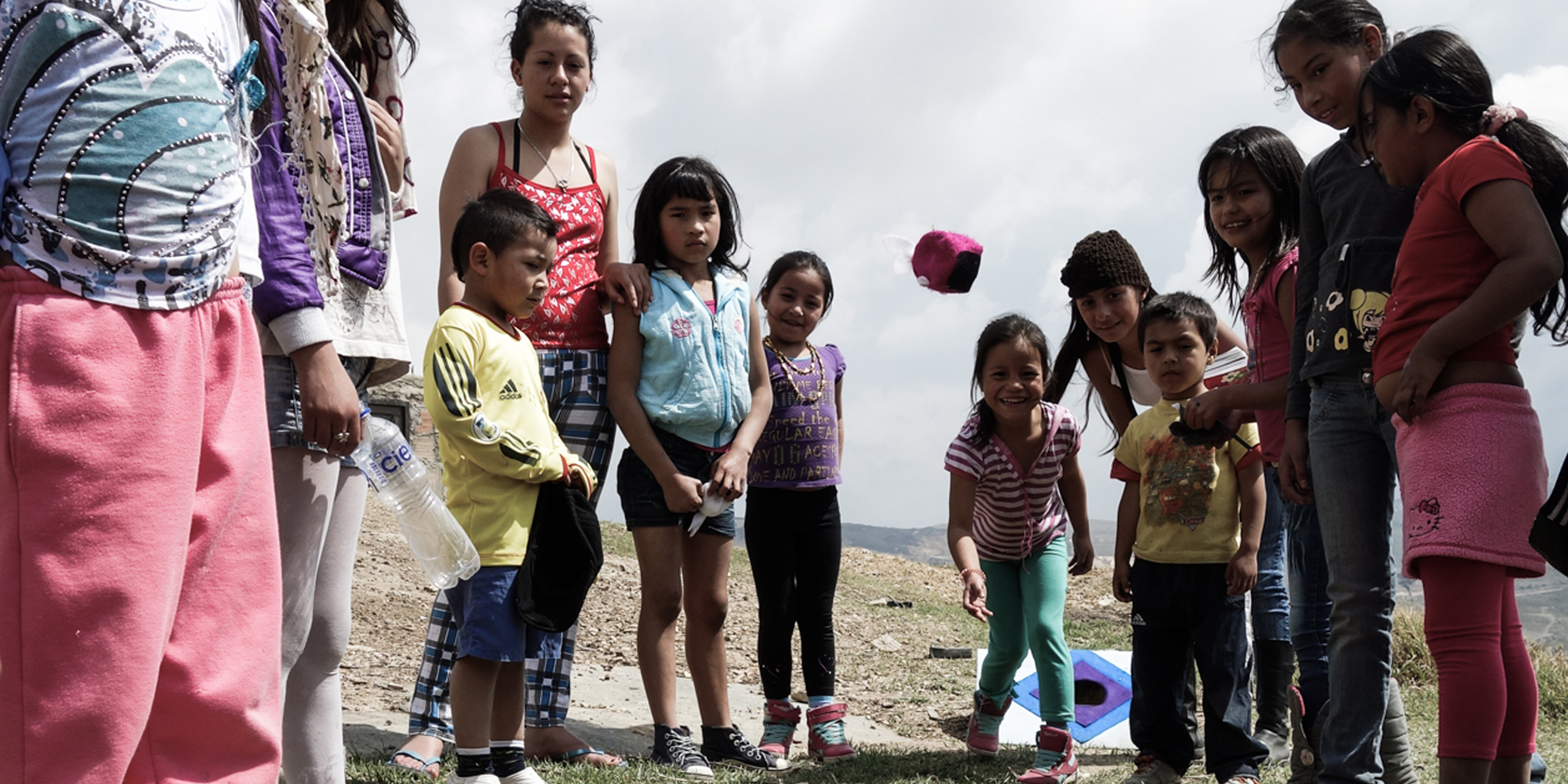 close
close
Empowering Women through Micro-Entrepreneurship: Tejo Conejo Children’s Game
Read moreConnie Bakshi (ENV) & Rudy Rummel (PROD)
The women of Altos del Pino are consistently present, well networked, and more than eager to take an active part in lifting their families and community out of poverty. However, existing gender dynamics as well as a lack of tools, training, resources, and opportunity prevent them from doing so. This project is aimed specifically at breaking the cycle of poverty by eliminating barriers and connecting them with social value- and income-generating opportunities and market access. The women would collaborate to produce Tejo Conejo – a highly engaging children’s game inspired by the Colombian national sport of Tejo – cultivating the market demand, process, and infrastructure for women to develop successful sewing micro-factories, while still allowing them to collectively care for their children. This home-based, micro-entrepreneurial business model would not only fulfill the economic needs of the women, but also create social value far beyond economic impact. This business model contains three specific annual milestones: year 1 would provide a 10% increase in household income for most families; year 2 the business would increase to include 200 women plus develop business literacy; year 3 could bring the introduction of additional products (or licenses) and provide income to 1,000’s of women in multiple locations.
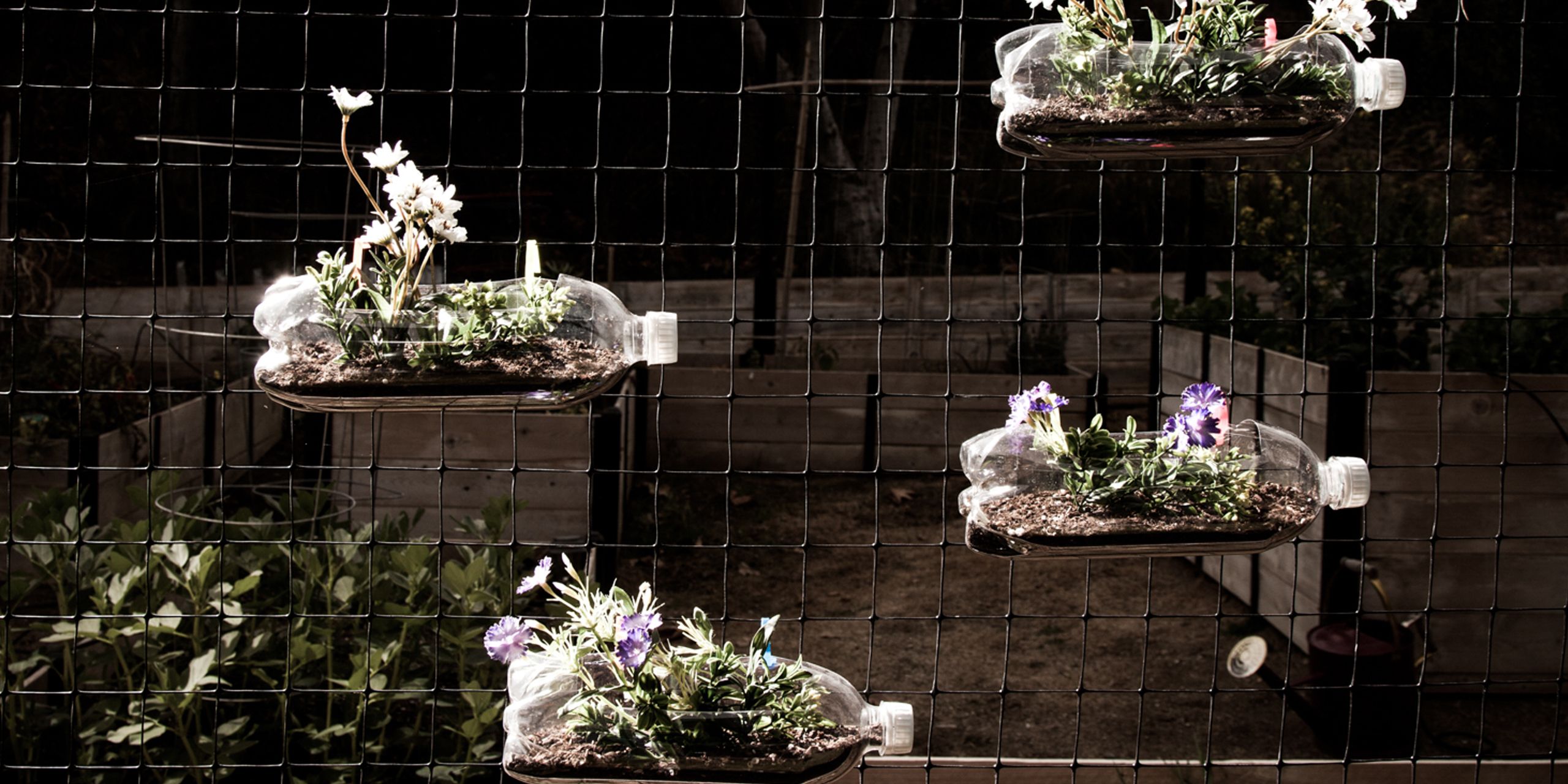 close
close
Learning Garden in Altos Del Pino
Read moreStefanie Dhillon (ENV)
The children of Altos del Pino are in need of educational tools to teach them values and enhance their ability to focus. There currently is a TECHO Community Center that is highly valuable, but there is still a need for outdoor space to play and learn. Residents of Altos del Pino come from a long history in farming/agriculture before being displaced to relocate to outskirts of big cities. The learning garden would reconnect the children with their heritage. It further seeks to enrich the lives of the children using gardening as a means for education, building values, teaching responsibility and strengthening focus. Located on a plot of land adjacent to the Community Center, the garden design optimizes reclaimed materials and rainwater, to create a sustainable, fun, educational, natural space for the community’s children. The learning garden employ “living fences” by employing reclaimed and otherwise discarded materials such as: plastic bottles becoming growing containers for herbs and flowers; worn tires painted bright colors and used as planters and swings; concrete stools formed using the common 5-gallon buckets. Ultimately, the members of the community would devise the name for learning garden as they take on its design and ownership.
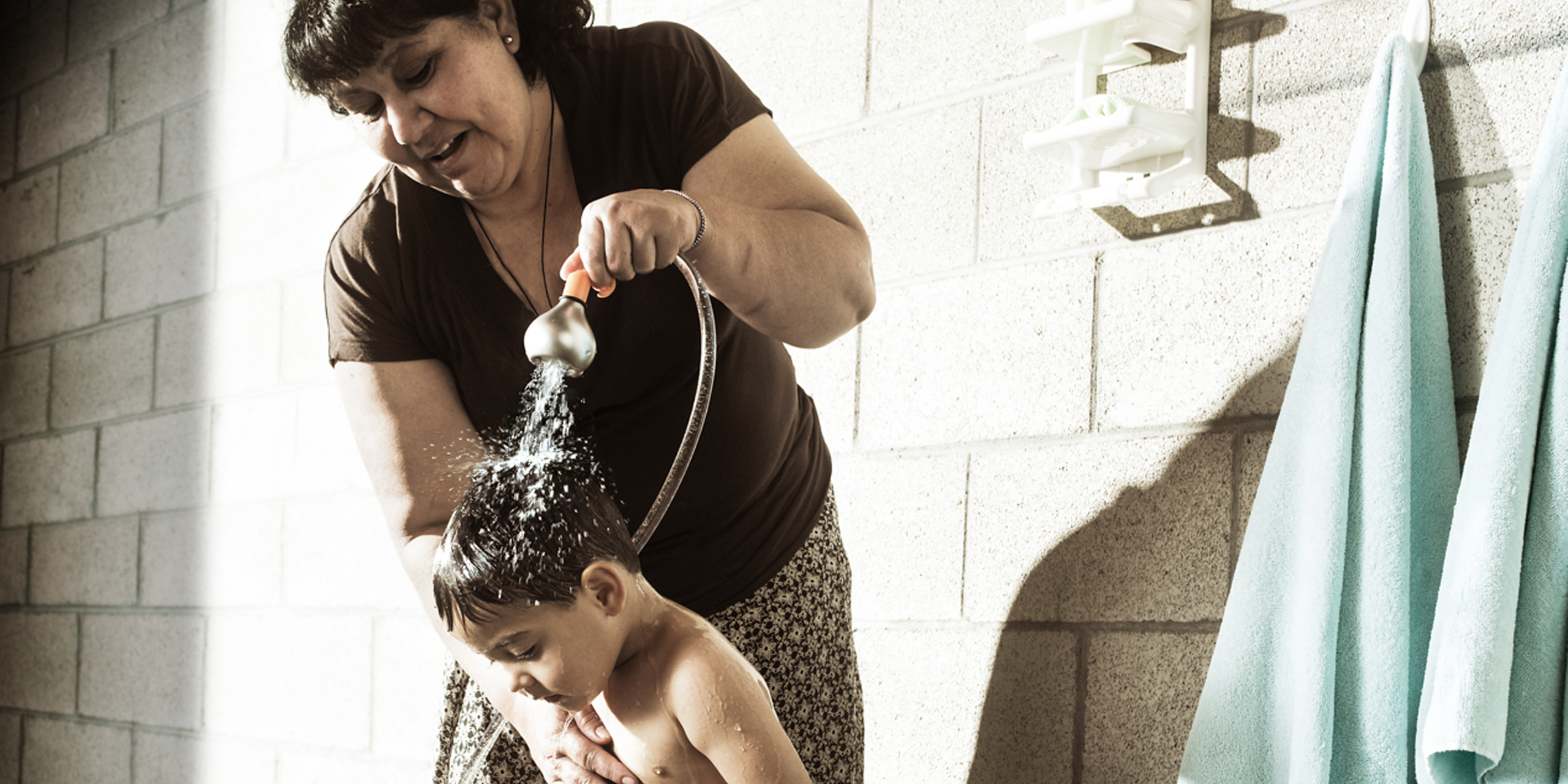 close
close
Calientamigos: Warm, Pressurized Shower and Water Heating System
Read moreKevin Chang (PROD) & Tianyi Sun (PROD)
Families prioritize warm showers for children, to help kids stay clean for school and prevent their kids from getting sick. The CalienteAmigo family of products offers a warm, pressurized shower for kids and adults. A safe, portable electrical heating unit heats water efficiently to save mothers time and effort preparing warm water for the children and adults to shower, with secondary applications for washing clothes, dishes, and cooking. The system incorporates the Bomba, a safe, portable electric heating device; Corazon de Agua foot-pump for pressurizing water (initially created by Shingo Mamiya and Kristina Jesena); and the Gota showerhead. This system is designed to not only provide warm, clean water for showering, but to provide the heated water quickly, inexpensively and portably. Many of the households traditionally heat water in pots on the gas-powered stoves. This is costly and inefficient, in terms of time and energy spent and water loss. The CalienteAmigo is fully contained and provides 5 gallons of water per use, enough for showers for 2 adults or 3 children. The business model provides for local assembly in conjunction with an NGO or could be licensed to a manufacturer for more efficient production and distribution.
To put a face to the people we are designing for while addressing significant social issues around the world is a truly incredible and empowering experience as a designer. A big part of Safe Agua involved co-creating with the families of Altos del Pino and collaborating with people of varied disciplines towards a shared goal. This experience made me realize that Art Center not only helps shape remarkable individuals but individuals who can succeed in a diverse team.” – Kristina Jesena, Student, Graduate Environmental Design
Next Steps
Expectations are high for the families of Altos del Pino. Given the success of the user-centered approach, the aspiration for Safe Agua Colombia is for the teams to develop design solutions that can improve the lives of those living in extreme poverty. While it is a real uphill battle to design sustainable products and services for the poor in unfamiliar markets, these projects are really connected to how the families in Altos del Pino live and survive. To continue design and business strategy development on the outcomes of Safe Agua, students have continued to participate in Phase 2 of the project, the Safe Agua Colombia Development Seminar: Co-Designing Water Innovations with the Base of the Pyramid. This unique course at Art Center College of Design will address the two key factors identified as barriers to systemic progress in access to safe, sustainable water, sanitation and hygiene: (1) Lack of appropriate and innovative technical solutions to provide affordable water and sanitation to peri-urban zones and rural settings; and (2) low citizen participation in the solution and management of these problems. Through the private/public sector alliance of Pioneros and consortia such as Compartamos con Colombia, opportunities may emerge to further develop the outcomes into market-based opportunities for the families of Altos del Pino.
In March of 2014, a select group of the Safe Agua Colombia team made their way back to Bogota to conduct another round of field research and prototype testing with the families in Altos del Pino. The students were also invited to apply for a prestigious Colombian Government competition entitled CO-CREA which could lead to further exposure and local implementation of the Safe Agua Colombia design solutions. Check back for more developments.
Authentic, inventive and playful solution to an everyday need. Good understanding of the value of doing daily rituals together.
– Oscar Pena, Jury Member, IDSA Awards & Global Creative Director, Philips Design Lighting
Methodology Cards
-
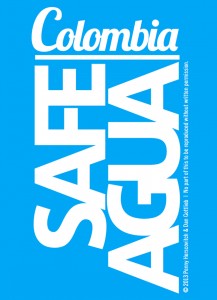
-
Safe Agua Colombia Methodology Cards
The ethnographical research methodology process of the Safe Agua Colombia studio.
Download PDF
Booklet
-
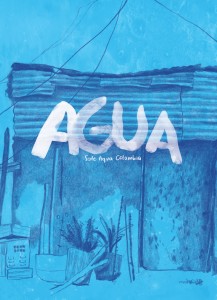
-
Safe Agua Colombia Booklet
Buy or Download
Awards
-
2015 WINNER
VentureWell Open Minds Showcase
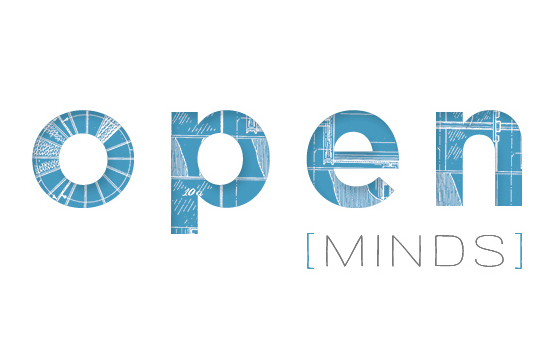
-
2014 WINNER
Design for Well-being Award
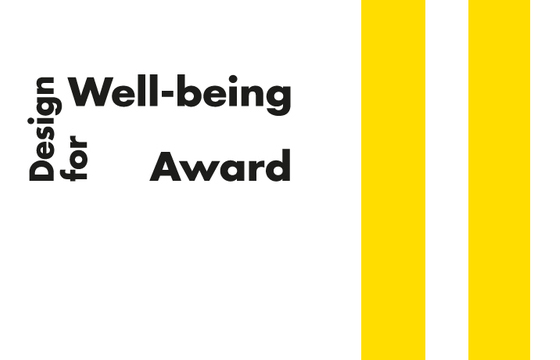
-
2014 WINNER
SPARK AWARDS
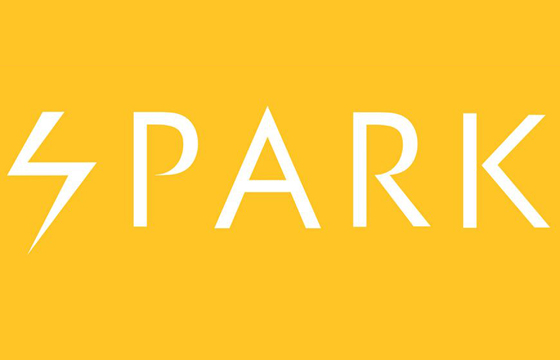
-
2014 WINNER
Red Dot Design Awards
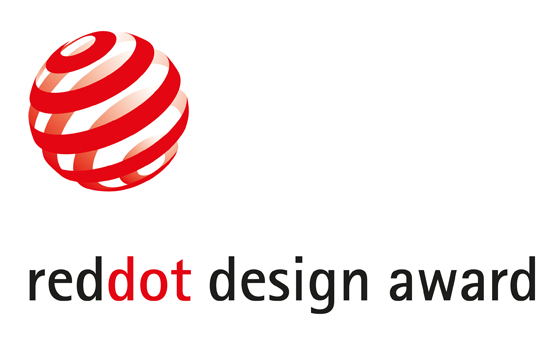
-
2014 WINNER
Denhart Family Sustainability Prize
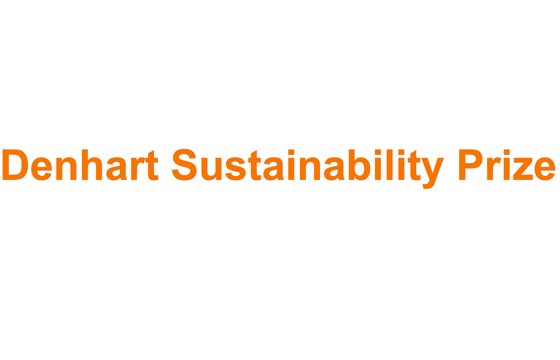
-
2014 WINNER
A’Design Awards
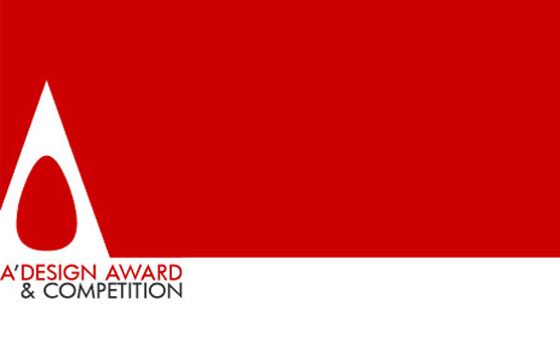
-
2014 WINNER
IDSA/IDEA Awards
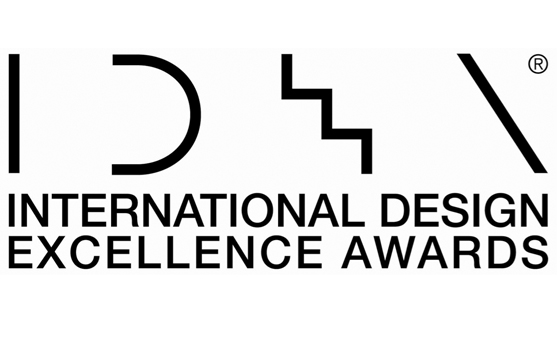
-
2014 WINNER
CREA Competition
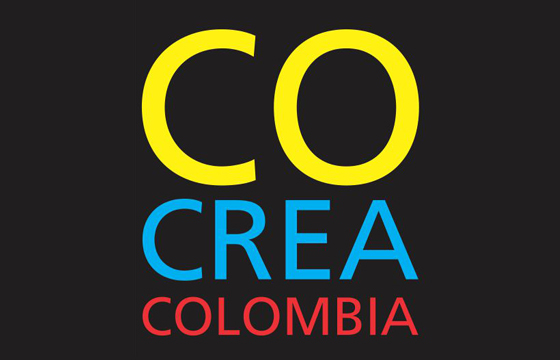
-
2014 WINNER
VentureWell: Sustainable Vision Grant

